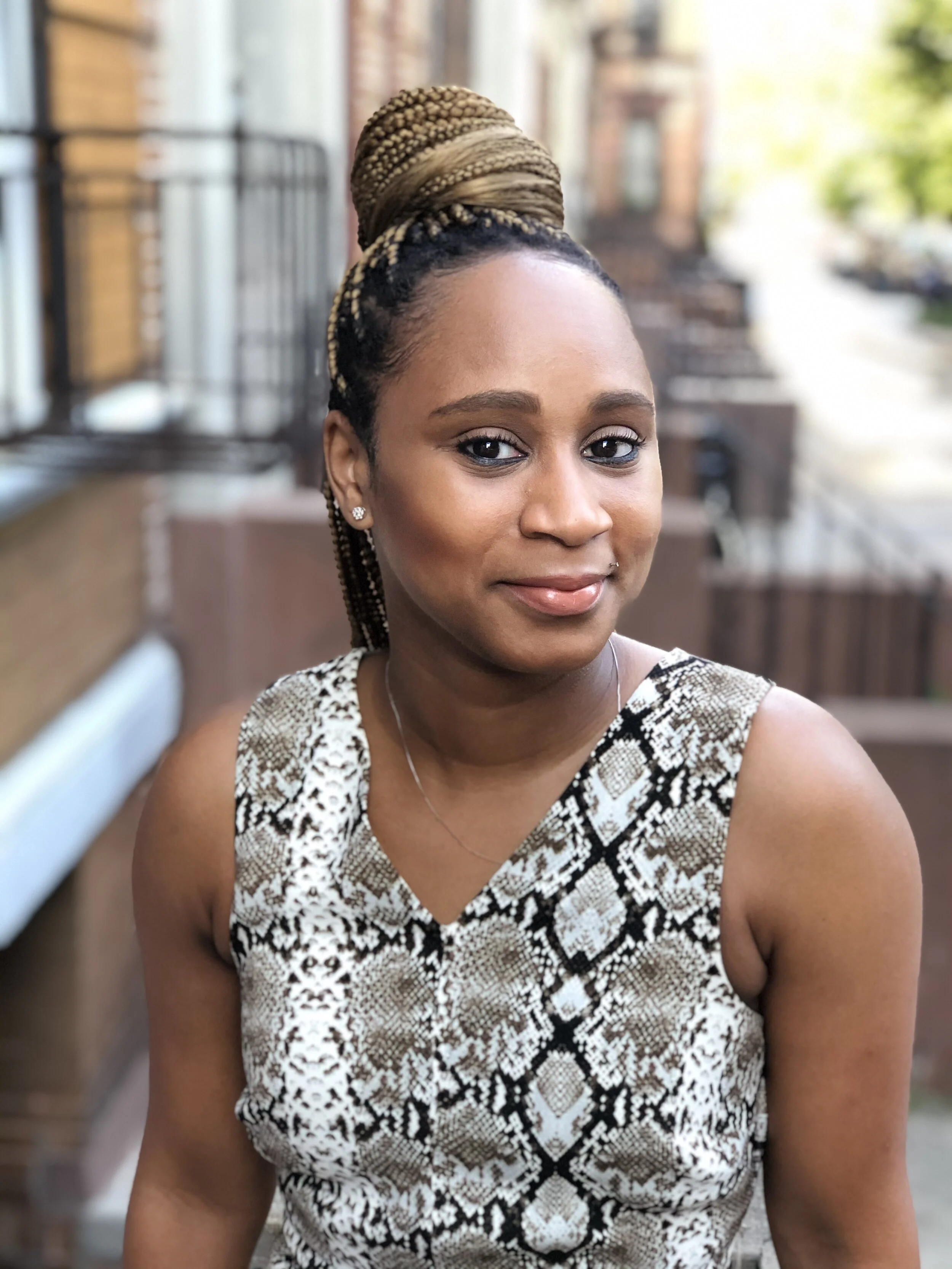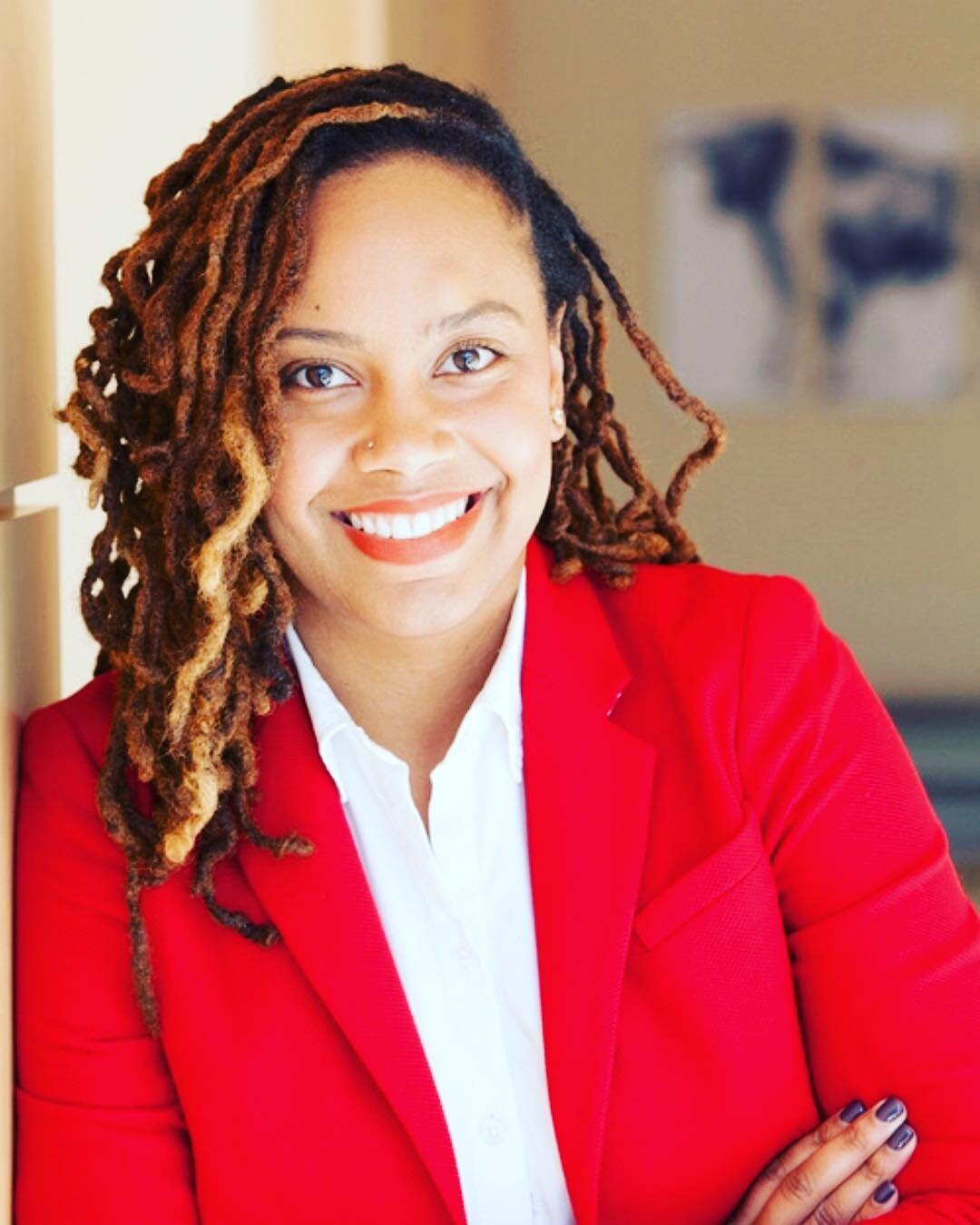Tiarra Nero, Real Estate Marketing Manager
Hi, Tiarra! So tell me, what do you do?
That’s so loaded. (laughs) I am a creative project coordinator for a marketing firm that focuses on real estate. Basically I manage media placements for clients, whether that’s a feature in the New York Times, Wall Street Journal, out-of-home signage such as ads on the subway or the Metro North. I also help to manage and coordinate digital marketing, like pay per click ads, social media, and I work with the creative team to ensure that the ads are representative of what the client is looking for and stays on brand. So I’m constantly working with multiple internal teams and the client, as well. It entails a lot of follow-up, paying attention to details, working with vendors, maintaining a good relationship with all parties. There’s an analytical portion, as well, which requires a lot of data analysis to determine how the marketing campaigns have performed. I also do some billing, processing, and contracts.
That’s a lot! Did you go to school for this?
No, actually. I got here by trial and error. It was helpful because that’s how I figured out what works and what doesn’t, and what I like and what I don’t like. In college I majored in fashion merchandising and design, then received my MBA. While in graduate school, my favorite class was marketing. I didn’t know a lot about that space so when I finished school and entered the fashion industry, I entered on the merchant side which was the more business-minded, financial side. It wasn’t very creative, so I kept that in mind as I sought different positions later.
Before switching industries, my last role in fashion combined buying and marketing, so that helped open the door for me to establish myself as a marketing professional. I managed all marketing for my department, so that was a great opportunity and a lot of exposure. I wanted to stick with marketing, but I didn’t have a role in mind. I looked at different descriptions and researched areas I was interested in, and this came along. Now I’m in real estate.
Have you had any individuals who were particularly meaningful in helping you determine your career path?
Not really. I’ve never had a mentor, though I tend to learn from my immediate managers. I’ve always worked with a lot of strong women, and I’ve watched them and taken their best qualities. I was especially eager to learn from them because they were pretty successful in their own right, and passionate. Outside of work, I learn a lot from grandmother. Once I have an idea of what I want to do, I like bouncing ideas off of her when I’m figuring out my next steps. She came from the legal field, but I am still able to learn from her experiences.
What career accomplishments are you most pleased with?
Successfully transitioning into a new field and being able to climb the ranks. I set my sights on account management and project management roles, once I found out those were roles that existed within marketing, which I wanted to transition into. I learned about creative marketing and became really interested in that space. So I did my research, and when I liked the job descriptions I came across, I went for it. In my current role, I go between account management and project management. I’m technically a coordinator but I both manage and coordinate depending on the account.
Do you feel that your educational experiences and prior job experiences in the fashion industry set you up well for what you do now?
My work experience has really given me the most to work with and been most beneficial because I didn’t study marketing and only took one related class in graduate school. From those earlier work experiences, I have learned how to follow up and maintain relationships, to be meticulous when reviewing contracts. As far as my education goes, it’s been great in terms of networking and learning from people who have similar roles.
Can you describe your experience in your current role?
There have been pain points and learning curves in transitioning to a new role and industry. That part can be a little challenging, but it’s also exciting when I look back and see how much I’ve learned in five months. I’ve learned so much about the real estate industry. When I look back and remember the things I didn’t know how to do that I can now do on my own and do well—that feels good.
What keeps you motivated?
Money. These bills. (laughs) I would say my ultimate motivation is to make enough money to one day be able to take care of family and treat my loved ones to nice things. I’d also like to travel even more than I already do, and take my mom, step-mom, and grandmother on fully-paid vacations. Just being financially stable, having flexibility and multiple income streams. I don’t have to take care of anyone. No one in my life requires me to help them pay for things, but it’s something that I want to be able to do.
How do you keep your head right, and your spirit together?
Working out is huge for me. I work out every day. I always tell people that working out is my coffee. It really helps to get me ready for work. I also enjoy criminal justice shows. (laughs) I know that’s odd but when I need to relax I watch those shows because I know everything will be tied up and resolved in an hour.
What else are you into?
Traveling, learning about new cultures, meeting new people. I like to at least go to one new country per year. The last place I visited was the Bahamas, which was cool, but the last place I was really excited to go to was Zanzibar. That was my first trip to the African continent and it was my 30th birthday. The water was so beautiful.
I have gained interest in stock trading and real estate, given my new career path. I’m really seeking financial freedom, and I want to learn how to develop a stream of income without having to have a nine-to-five. I think that aspiration stems from being laid off before. I need to be able to have flexibility when it comes to work-life balance, but mostly I just don’t want to be reliant on a traditional job to be OK.
I love volunteering. I work at food banks a lot, but I also like working toward the restoration of women. I previously volunteered with sex trafficked survivors, and my main passion is working with a segment of my friend’s nonprofit, Project Refuge, which focuses on ensuring that women in this rural area of Uganda have enough sanitary supplies to stay in school. My role is director of women’s protection and empowerment. For these girls, education will really help to change their lives and their economic situation, and I appreciate that doing something so small like access to sanitary products—which we take for granted—can really make a difference.
What excites you most about your future?
The unknown. Just trying new things and figuring out what works. I’m working towards being able to volunteer while traveling abroad. So I’m setting myself up to not really have to be dependent on a nine-to-five office job and really just manage my time as I see fit, and do things I want to do.
Please share this post with a friend, and follow us at @BlackWomenWorkIG!



